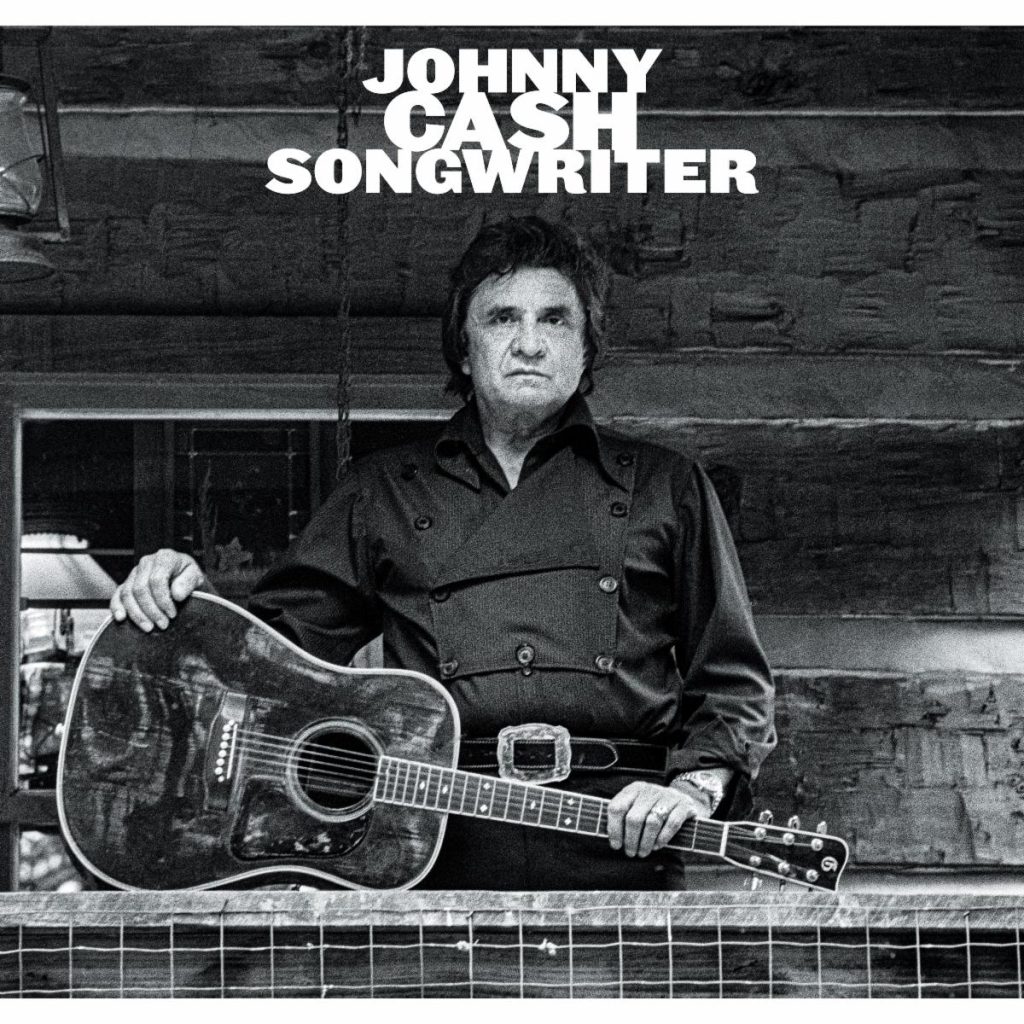ALBUM REVIEW: ‘Songwriter’ Resurrects Johnny Cash Demos From Early 1990s

In maybe the best news of the year, the Man in Black returns, more than 20 years after his death, with new music on Songwriter. These 11 songs, which he wrote mostly in the late 1980s and early 1990s, capture the richness and purity of his voice, and the clarity of these intimate recordings give the listener the feeling of being in the studio with Cash, as if he’s singing directly to them.
Back in 1993, Cash was between recording contracts, and he recorded a demo that contained these songs. John Carter Cash, his son with June Carter Cash, played with his father on the recordings then, but neither he nor his dad felt like it was time to release them. They were shelved, but John Carter Cash rediscovered them a few years ago. He and co-producer David “Fergie” Ferguson enlisted an all-star cast of artists — Marty Stuart on guitar, the late Dave Roe on bass, Peter Abbott on drums, and several others — to give new life to the songs.
Looping instrumentation adds layers beneath Cash’s echoing vocals on the psychedelic gospel album opener “Hello Out There,” with haunting background vocals from Ana Cristina Cash and Harry Stinson. Sounding as if he’s coming to us from the other side, Cash invokes apocalyptic imagery and language taken from the biblical book of Revelation — “When the angels sound their seven trumpets / Across the land and sea / And the king will come and reign a thousand years” — to underscore that cultural, ecological, and political divides are tearing the earth apart and that its “net worth is / Falling, falling, falling.”
The soaring strains of Mike Rojas’ B3 creates the foundation for the Black Keys’ Dan Auerbach’s snaky guitar solo on the soul-drenched “Spotlight,” while the haunting “Drive On” illustrates Cash’s classic ability to tell a story about a downtrodden individual searching for hope and love in the midst of despair. John Carter Cash’s and Wesley Orbison’s swirling guitar crescendo on the outro mimic the spiritual heights the song’s character achieves.
Featuring the familiar click-clack rhythms of Cash’s music, “Well Alright” delivers a tongue-in-cheek tale of finding love in a laundromat: “I opened up the dryer / And I set it on soft and light / She said, ‘Be gentle with my silk and lace’ / And I said, ‘Well alright.’”
In the tender ballad “She Sang Sweet Baby James,” Cash depicts a young single mother singing James Taylor’s song to her baby to put him to sleep; Cash cannily weaves in musical phrases and words (“turnpikes,” “mountains,” and “sea”) from Taylor’s song into his own little lullaby.
Cash released “Sing It Pretty Sue” on The Sound of Johnny Cash in 1962, but slows it down here to convey its poignant nature. “I Love You Tonite,” to which Waylon Jennings lends vocals, is a glittering ode to June Carter Cash, while “Poor Valley Girl,” with harmonies by Vince Gill, delivers an anthem to June and to Maybelle Carter and her songwriting and rhythmic guitar playing.
Songwriter presents, once again, Cash’s gifts for evoking the raggedness and euphoria of human emotions, often with humor, and probing the depths of religious and social injustices and the power of redemption. This powerful album adds more luster to Cash’s enduring legacy.
Johnny Cash’s Songwriter comes out June 28 via Mercury Nashville/UMe.



